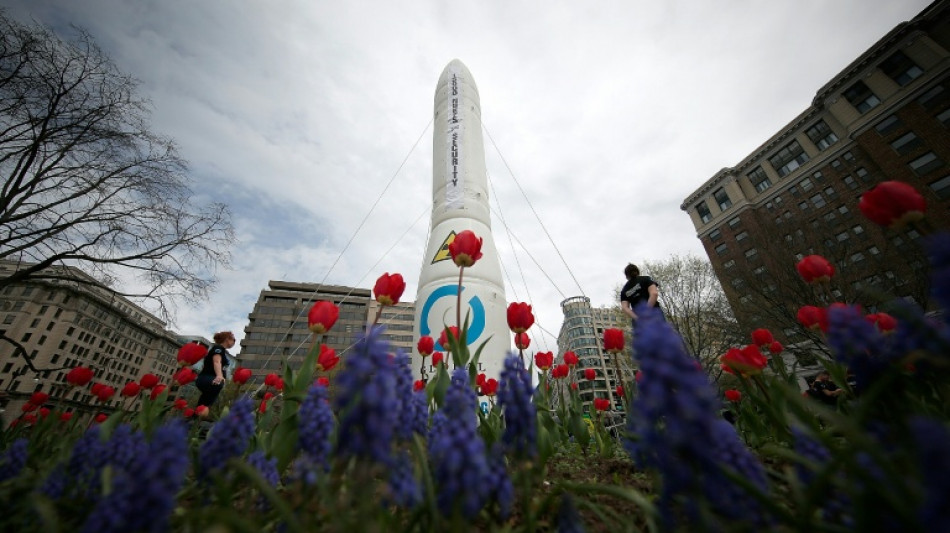

US begins sending nuke workers home as shutdown drags
The agency responsible for safeguarding the US nuclear stockpile began placing most staff on enforced leave Monday, US media reported, as the government shutdown dragged into a fourth week.
Some 1,400 workers at the National Nuclear Security Administration (NNSA) were due to receive notices telling them they had been placed on unpaid "furlough," CNN reported, leaving just 375 at their posts.
"Since its creation in 2000, NNSA has never before furloughed federal workers during funding lapses," Energy Department spokesman Ben Dietderich told CNN.
"We are left with no choice this time. We've extended funding as long as we could."
The United States has an arsenal of 5,177 nuclear warheads, with about 1,770 deployed, according to the global security nonprofit Bulletin of the Atomic Scientists.
The NNSA is responsible for designing, manufacturing, servicing and securing the weapons, and oversees some 60,000 contractors.
The Department of Energy did not immediately respond to a request for comment, but Energy Secretary Chris Wright was expected to highlight the impact on the nuclear deterrent during a visit later Monday to the Nevada National Security Site.
The furloughs will initially hit sites that assemble nuclear weapons, forcing facilities such as Pantex in Texas and Y-12 in Tennessee into "safe shutdown mode," CNN reported.
At 20 days, America is enduring the longest full government shutdown ever -- the third-longest if partial stoppages are included.
President Donald Trump has been ratcheting up pressure on Democrats to vote with his Republicans to reopen the government, with increasingly ominous threats to slash public services and start mass layoffs.
Kevin Hassett, the director of the White House National Economic Council, told CNBC he expected the shutdown to end "some time this week" -- but warned Democrats of "stronger measures... to bring them to the table" if it dragged further.
- 'Danger to the American people' -
Senate Republicans have offered a vote on renewing expiring health care subsidies for 24 million Americans -- Democrats' key condition for backing a House-passed funding resolution that would reopen the government.
But many Democrats insist that any deal in the upper chamber of Congress will be meaningless without the sign-off of House Speaker Mike Johnson and Trump.
Johnson has vowed to keep the lower chamber of Congress closed until the shutdown ends, and it has already been out of session since September 19.
"Every day that the government is shut down, it is a danger to the American people," Johnson told reporters on Monday, when he was asked about the NNSA furloughs.
He warned that falling behind US adversaries in the nuclear arms race would be a "very serious" threat to America's status as "the last great superpower."
Trump meanwhile has been clear that he believes Republicans are winning the messaging war and has not felt the need so far to intervene.
The next significant inflection point may come on November 1, the start of open enrollment for health insurance.
Punchbowl News reported that Senate Democrats see this date as a potential off-ramp because they can argue that it will not be possible afterwards for Congress to address the expiring subsidies.
Democratic strategists are confident that they can stick Republicans with the blame for skyrocketing premiums and health care coverage losses that would hit millions of Americans in 2026 if no action is taken.
Federal employees -- who generally get paid every two weeks -- are expected to miss the entire amount for the first time on Thursday, and troop pay is another issue pressuring lawmakers to strike a deal.
The Senate is due to consider legislation midweek that would allow members of the military and other federal workers to receive pay, though it's not clear that the effort has sufficient Democratic buy-in.
And the Senate is expected to reject for the 11th time the House-passed resolution to reopen the government.
H.Anand--MT




